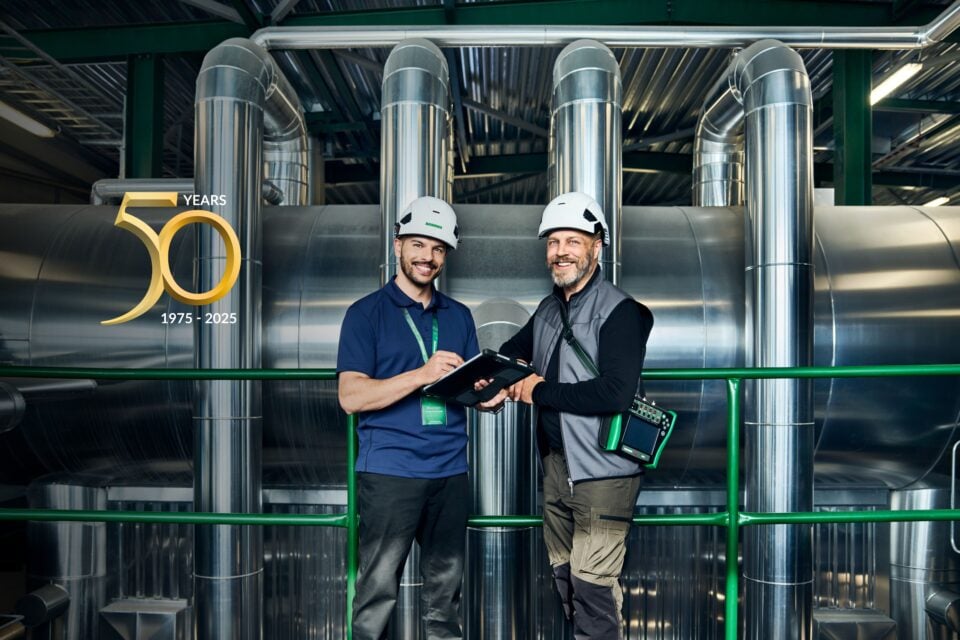
Enough with the Pilot Projects: It’s Time to See Results
Jan-Henrik Svensson, CEO, Beamex
In 2017, a well-intentioned experiment was run in my country of Finland. The two-year pilot program promised a basic income of EUR 560 to 2000 unemployed people, The goal of the pilot was to understand how offering guaranteed basic support would affect unemployment. The pilot project ended in 2018, and judging by the results, it did lead to a small increase in employment, while significantly boosting well-being. However, for one reason or the other, the programme never went beyond the pilot phase.
The fate of promising pilot projects and their inability to go mainstream has been on my mind lately. Spurred by the promise of Industry 4.0, practically every sector out there has launched one pilot project after another with a lot of fanfare. You read the likes of McKinsey, Deloitte and various other publications touting revolutionary new projects that they say will break new ground in every industry.
Yet, when it comes to their results and widespread adoption, I’ve noticed a conspicuous silence. Where, I ask, are the results?
According to the World Economic Forum, over 70% of companies investing in advanced analytics, AI, or 3D printing fail to move beyond the pilot phase of development. At a time when new technologies promise the unlocking of billions in value, what is stopping companies from scaling pilots?
Fear of change
Looking at the glass half full, the good news is that companies are ready and willing to launch pilots. Working in the field of calibration, I have witnessed first-hand process industries such as oil & gas, chemicals and manufacturing try to revitalise themselves by embracing digitalisation, AI, the circular economy and other disruptive processes.
They have all launched exciting pilots. Some of them have to do with modular production systems. Others set about creating future-proof plants and mills, yet others are trying to create entirely new sources of clean energy or green fuels. The proof of concept looks great. Yet, when it comes to implementing the project at scale, I have noticed a fear of the unknown. Many organisations are, in effect, struggling with decision paralysis.
No one wants to be the first to overturn long-established ways of working or change business models. They worry that the pilot will not scale up and they will be held at fault. The transition to Industry 4.0 is not merely an upgrade but a fundamental transformation. It affects not only production but also the entire value chain, from supply chain logistics to customer interactions. An overhaul can seem overwhelming, especially when existing systems and processes seem to be working perfectly fine to them.
A lack of integration
One of the other main reasons pilot projects struggle to advance is the structural and cultural inertia within organisations.
Silos—such as between operations, IT, and other departments—can hinder the cross-functional collaboration needed for Industry 4.0 initiatives. Taking a pilot from start to mainstream requires seamless integration across various domains. This shift can be daunting for many established companies.
Companies need to integrate their business at all levels. They need to remove structural barriers and create a culture of empowerment and continuous improvement if they are to maintain a competitive edge. This cultural shift is already underway in some areas, particularly in new industries like battery manufacturing and biotech, where companies do not have entrenched legacy systems and can adopt a more agile, startup-like mentality.
These industries can unleash the potential of Industry 4.0 with their willingness to embrace new opportunities fully.
Still time to catch up
All that said and done, not every pilot project remains stuck. I bet that those companies that have managed to successfully accelerate their adoption of Industry 4.0 will create competitive pressure, a “catch-up” atmosphere that will encourage more organisations to invest in scaling their pilot projects.
As more companies achieve tangible benefits from their Industry 4.0 initiatives, this momentum can build, driving widespread adoption across the sector.
Take the case of the Pfizer-BioNTech COVID-19 vaccine, one of the largest and fastest vaccine development and distribution programmes in the world. I consider this the best example of a pilot project that scaled up fast and powerfully to the benefit of all.
Leveraging the power of digitalization, agile processes and a determination to go big in a high-stakes environment, trailblazers like these should act as inspiration for other companies looking to advance their Industry 4.0 initiatives.
Lessons from the Homefront
Now, you might wonder, have I put into practice these recommendations in my own business? That is a fair question and one that I am proud to answer in the affirmative.
We are certainly a trailblazer in our industry, having decided long ago to focus on both calibration hardware and software, making us the only company to be able to offer a complete calibration ecosystem.
However, what is most important, in my opinion, is that we are helping our process industry customers scale up by providing them with solutions for their legacy systems as well as digital offerings, both of which can be seamlessly integrated into their Industry 4.0 initiatives.
Additionally, our digital tools enhance transparency and reliability. For instance, calibration plays a crucial role in ensuring the accuracy and trustworthiness of measurement data, which is essential for the integrity of digital models and simulations used in Industry 4.0.
Providing confidence to scale up
Reliable data not only supports operational decisions but also provides people with the confidence needed to take their pilot projects to scale, thus addressing the fear of the unknown that often stalls decision-making.
The journey from pilot project to full-scale implementation in process industries, or any industry for that matter, is fraught with challenges, but the potential rewards are immense. The key to progress lies in data-driven decision-making, cross-functional integration, and a fearless embrace of innovation, and I hope that companies can effectively manage this, for their own sake.
Do you too think it is high time companies scaled up their pilot projects? Or do you think caution should be the way to go? Get in touch and let’s talk.
You might also find interesting

For a safer and less uncertain world
Welcome to our series of topical articles where we discuss the impact that accurate measurement and calibration has on the world and our everyday lives.























